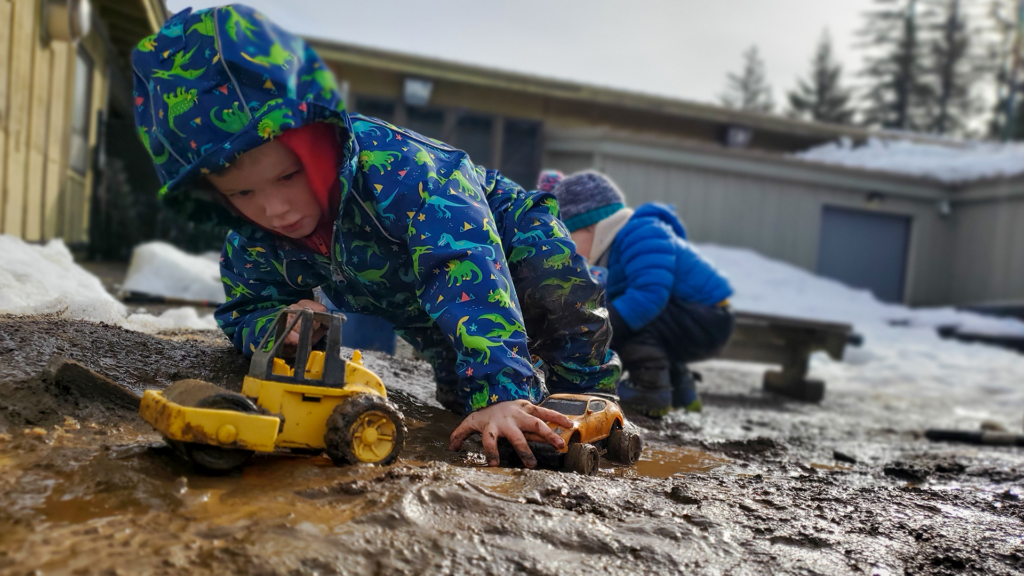
As a new mother, Tiffany Pearsall was commuting an hour and a half to and from Gresham, Oregon, for child care, which gave her plenty of time on the road to rethink her priorities. She’d been a preschool teacher for a half-dozen years and knew she wanted more for herself and her family, as well as other families in her community. So Tiffany decided to open a child care facility in her own community in rural Skamania County.
Tucked along the Columbia River Gorge, Skamania County is geographically part of the Portland-Vancouver metropolitan area, but it doesn’t look like its more urban neighbors. Instead, just a few small towns serve as the launching point into the Gifford Pinchot National Forest, which occupies its vast majority. Many people in the county have ties to the U.S. Forest Service, which manages 1.3 million acres of land in Skamania, Cowlitz, Klickitat, Lewis and Yakima counties.
The 2020 Census revealed that more than 2,200 of Skamania County’s 12,036 total residents were under the age of 18. When Play Frontier was founded in 2018 for 31 children, it became the county’s only licensed child care center.
It took Tiffany about a year to find the perfect spot for her vision of a place where kids and adults could learn and play in wild spaces. She found Play Frontier’s current home at the vacant Wind River Nursery in the unincorporated community of Stabler, where they teach and care for kids ranging from infants to 5 years old in the facility’s breakroom.
Child Care Partnership Grant program

A 2021 Washington Child Care Collaborative Task Force report estimated that 63% of Washington children live in areas with inadequate child care, reducing our state’s workforce by 133,000 people. These areas are considered child care deserts. Skamania County is one of them.
The Washington State Department of Commerce is working to address such disparities. One example is the Child Care Partnership Grant (CCPG) program, which began as a pilot in 2020 and has proven to be highly successful in helping communities access child care.
“Our approach involves supporting local coalitions and partnerships in identifying and pursuing child care solutions that are most appropriate to them,” said Cheryl Smith, director of Commerce’s community engagement and outreach.
Since the CCPG program was established, 41 community partnerships in 28 counties have received funding. By empowering communities to address local needs, the projects are on track to add 1,353 new child care spots in 43 new or expanded centers. This includes 20 culturally or language-specific programs.
“We’re thrilled to have ongoing funding for this important local capacity building program,” Cheryl added. “We hope to support many more historically marginalized and underserved communities that need affordable, quality child care.”
Play Frontier was among the first child care facilities to apply for and receive a two-year, $28,185 CCPG grant in the initial 2020 funding round. A second $30,000 CCPG grant in 2022 is supporting the final planning, coordination and partnership building of their project.
According to Karlena Brailey, Commerce’s Olympic Peninsula Regional Community Engagement Specialist and CCPG program manager, the funding helped Play Frontier form foundational partnerships to apply for funding and successfully raise enough money to develop an entirely new child care facility to meet community needs.
Play Frontier was able to hire a full-time administrator to help assess community needs and gaps in care, Tiffany said. “That grant showed us there’s a big demand for care out here. There’s a need that’s not being met,” she said.
Expanded care
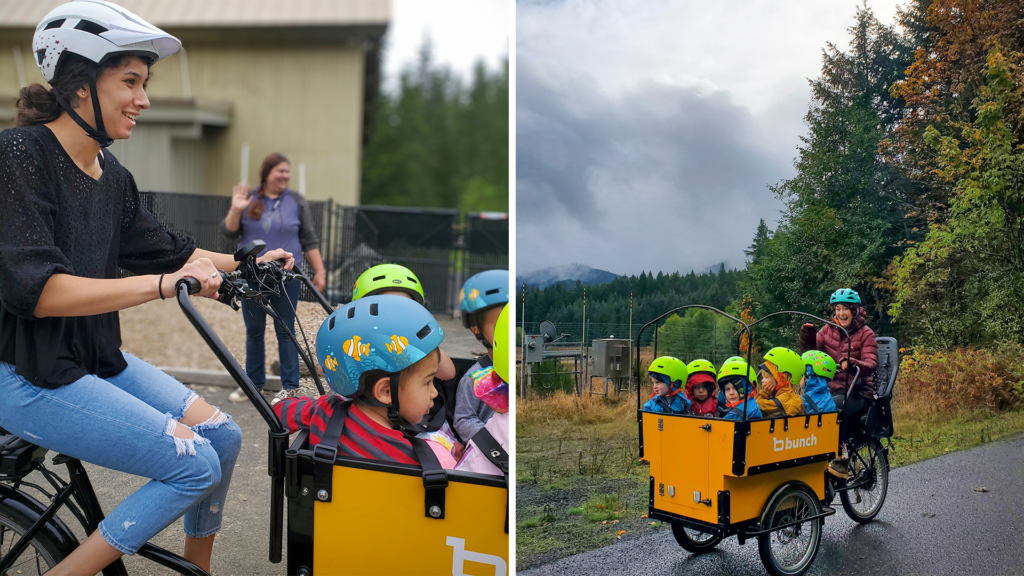
CCPG funded initial surveys and outreach, which revealed a significant gap in care for school age children in the community.
“There’s nowhere for elementary kids to go after school or much summertime reliability,” Tiffany said. “So we said, ‘Hey, we need to move. We need to make this happen.’”
Play Frontier’s board of directors partnered with the Skamania Economic Development Council, which provided additional grant funding and a loan to support the facility’s application for an Early Learning Facilities (ELF) grant from Commerce.
The partnership was successful. In April 2022, Play Frontier was awarded $1 million in ELF funding.
The ELF funding and other community support means Play Frontier can expand beyond the breakroom and relocate to a larger, kid-friendly facility just across the street and on the same property owned by Skamania County. It means more kids and more child care access in this underserved community.
A lot of work and community coordination has gone into supporting the vision for expanded care.
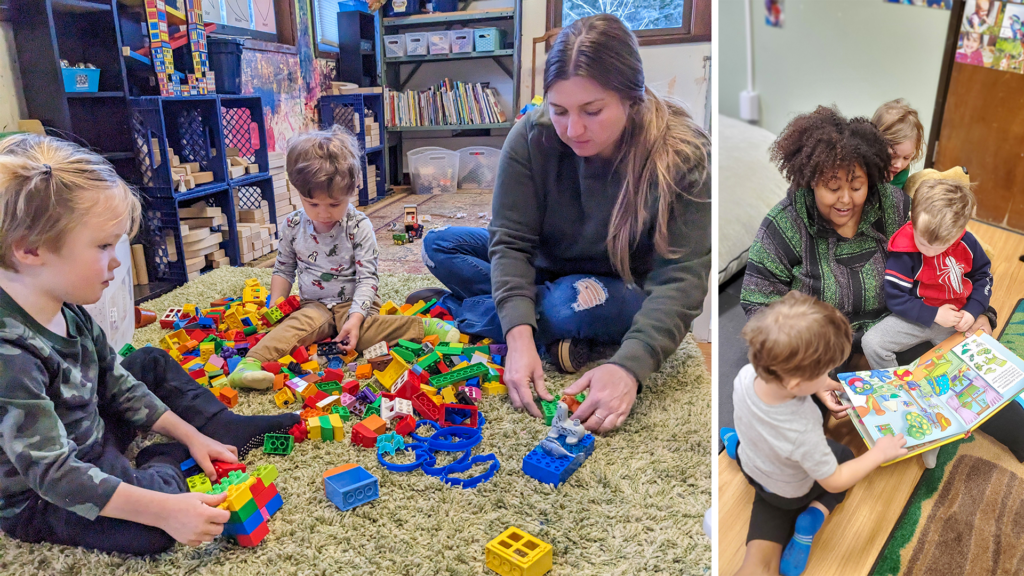
New partnerships with Skamania County and ESD 112 contributed to construction coordination, as the abandoned buildings at the new location needed upgrades to qualify for child care licensing.
The new campus will add over 70 new slots for child care and double Skamania County’s capacity for infant care after it’s fully licensed by the Washington State Department of Children, Youth and Families (DCYF). It also creates the community’s first dedicated school-age space for before- and after-school care, and provides summer enrichment opportunities.
It will be an empowering learning environment geared towards kids. The space is designed specifically for young children, including the addition of age-appropriate bathrooms with shorter toilets and lower windows so the children can see beyond their classrooms.
The expanded facility is projected to open in summer 2023.
Environmental education
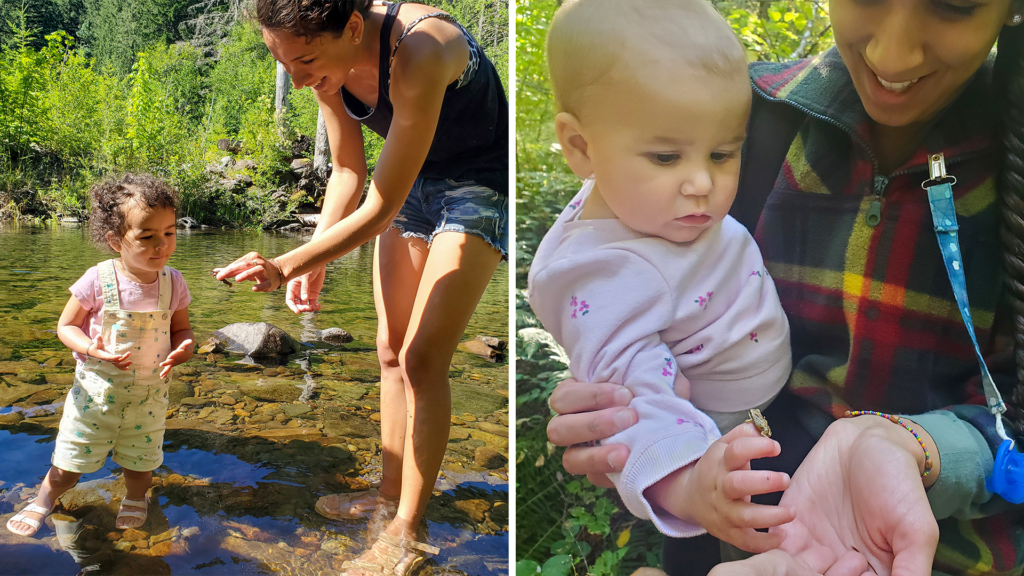
Play Frontier’s new location has one feature essential to the facility’s curriculum: A playground in the forest.
Relationships with the U.S. Forest Service and Gifford Pinchot National Forest created the opportunity for ecological literacy and a relationship with wild spaces, which is important to Tiffany.
Students and teachers spend at least two hours outdoors every day, on foot and on cargo bikes along the rural forested trails. Nature education is uplifting for the children, bringing different perspectives and development, something Tiffany says most people don’t get a chance to have until they’re adults.
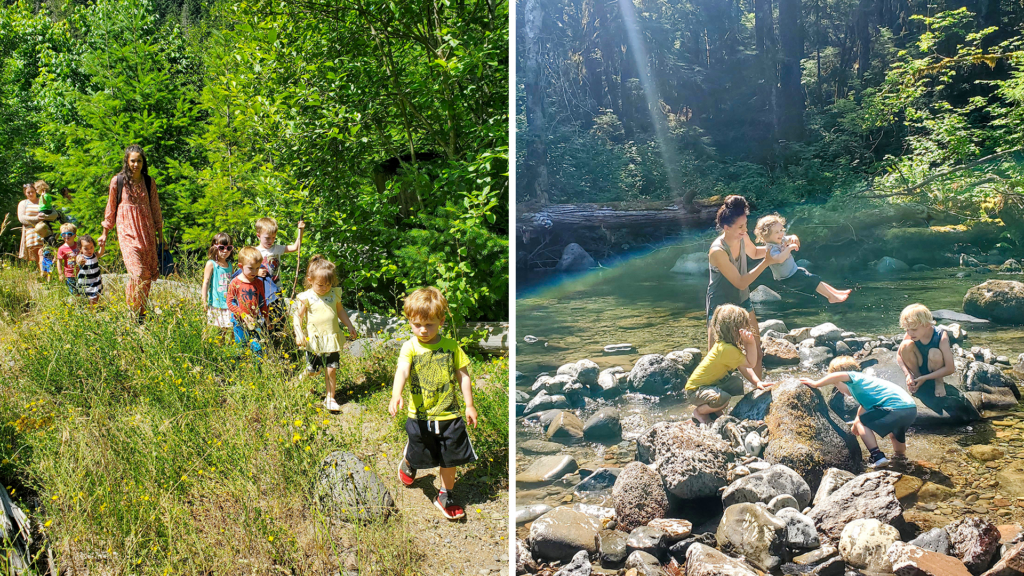
“I think the most important thing to know is that our kids are happier and teachers are happier when they get to experience a true freedom that is being outside, off-leash in the woods,” she said. “If you’ve never felt it, you don’t know what you’re missing.”
Tiffany believes environmental stewardship starts at birth and shouldn’t be an afterthought.
“Having an opportunity to connect with nature at such a young age, my hope is that they grow into adulthood and always hold those moments,” she added. “I want this for my children. I want to take care of these places. I want to do right by Mother Nature.”
Ongoing challenges

The child care industry faces myriad challenges, and the COVID-19 pandemic has further exaggerated issues, including high cost and staff turnover.
Tiffany knows about the trends, and plans to be an exception. Play Frontier has had its current team for an entire year, and she hopes to have the same teachers for at least five years.
“If you’re getting new staff every three months, you’re never getting to a point where you have a strong team or even a strong classroom life,” she said. “You’re barely scratching the surface of a training and orientation period before they’re exhausted and not making enough money. So they move on to the next thing. It’s very labor intensive work. We’re in a place that maybe wouldn’t have child care of this scale. It’s hard, but we’re offering equitable care to the best of our abilities as much as our resources allow.”
Play Frontier has established successful partnerships as it navigates the rocky child care landscape, and Tiffany hopes it can be an example for other communities.
“It’s part of why I really wanted to open a child care facility out here. If we can’t make this work in a small community, then there’s no hope for anyone else,” said Tiffany. “If we can’t collectively solve this problem with all our fingers in the pie, how is any community supposed to solve it when you have the steps further removed and more people in a community?”
